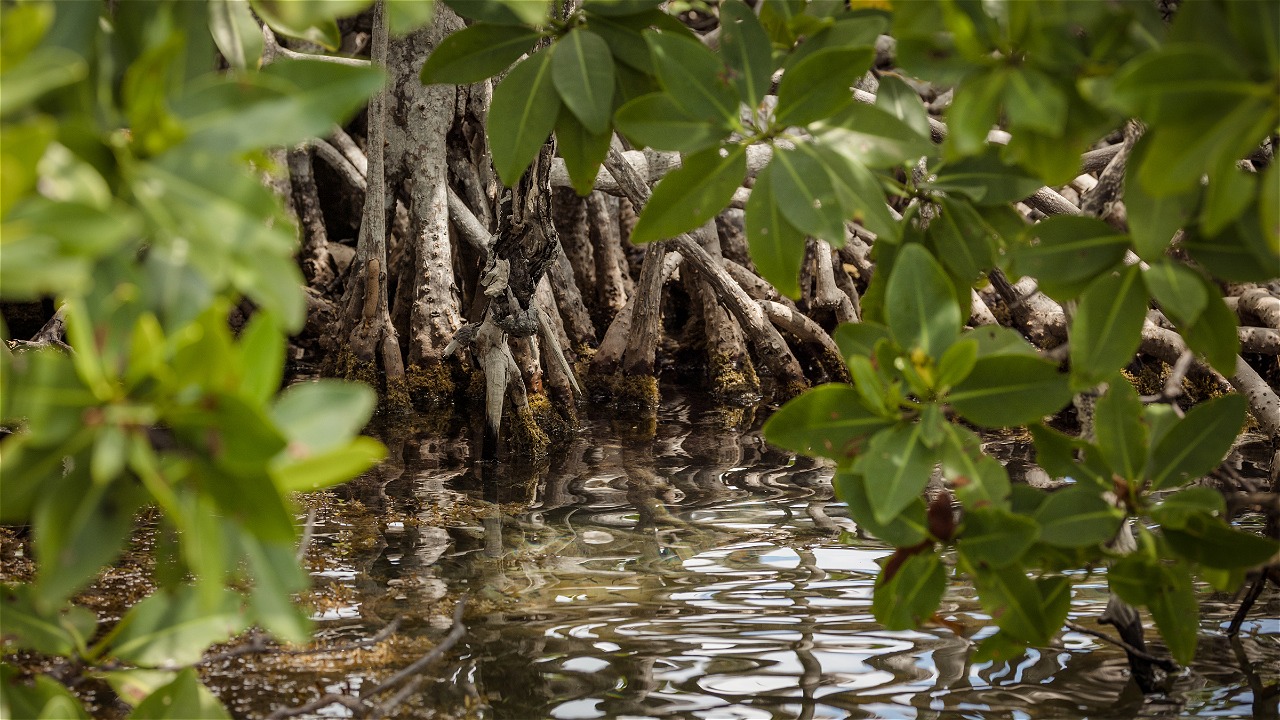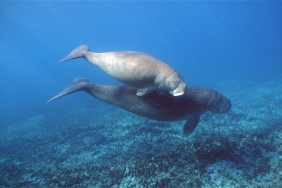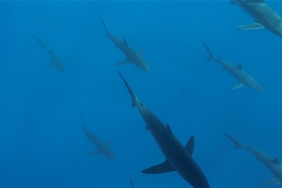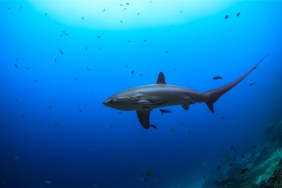VISITED BY ASC-MSC ECOLABEL REPRESENTATIVE, TAKALAR FARMERS UNDERSTAND SUSTAINABLE SEAWEED STANDARDS
By: Amriana (Local Facilitator, Aquaculture Improvement Program Gracilaria, WWF-Indonesia) & Idham Malik (Aquaculture Staff, WWF-Indonesia)
Wednesday (08/08/2018) was a memorable day for the gracilaria seaweed farmers of Samaturu Group, a group assisted by WWF-Indonesia and Celebes Seaweed Group (CSG).
Patricia Bianchi, ASC-MSC (Aquaculture Stewardship Council - Marine Stewardship Council) Seaweed Account Manager, Anthony Alvin (Program Officer, MSC Indonesia), and Nur Ahyani (Aquaculture, WWF-Indonesia) visited the Samaturu secretariat in Cilallang Hamlet, Takalar Lama Village, Takalar Regency.
This field visit was conducted after the ASC - MSC Seaweed Standard training held by WWF in collaboration with UNIDO (United Nation Industrial Development Organization), on 6 - 7 August 2018.
Takalar was chosen because there has been ongoing assistance towards responsible and sustainable cultivation by referring to the BMP (Better Management Practice)Gracilaria Cultivation guidelines. In addition, there has been a commitment from Celebes Seaweed Group (CSG) - a seaweed producer that participated in the cultivation improvement program with Seafood Savers to invite farmers to implement sustainable cultivation based on the ASC - MSC Seaweed standard.
In Takalar Lama, Patricia and the team saw firsthand the gracilaria pond area assisted by WWF and CSG. She confirmed the field conditions based on the ASC-MSC Seaweed principles, observing the mangrove pond area of 60.3 hectares.
"For now, there has been a data collection of the mangrove area and a map of the pond area, and mangrove planting and nurseries have been carried out by gracilaria farmers. We are currently conducting a mangrove nursery in one of the farmer's houses," explained us, the WWF team, explaining the steps to improve the pond environment.
"In the future, the seedlings will be planted by the Samaturu Group. So far, the Samaturu group members have understood the importance of mangroves in the pond area, and have the desire to improve environmental conditions," we added, explaining how the group's institutional management in realizing more environmentally friendly farming.
After visiting the ponds, the ASC - MSC Seaweed team had a discussion with the farmers at the Samaturu' Group secretariat. Patricia and Antony explained what ASC - MSC Seaweed is and explained in simple terms each of the ASC - MSC Seaweed principles.
5 Principles of Sustainable Seaweed Farming in the ASC-MSC Standard
- Agriculture activities maintain the productivity of non-cultivated seaweed populations as well as their sustainability (Seaweed harvesting activities in nature);
- Cultivation activities pay attention to ecosystem functions and minimize impacts on ecology and biodiversity;
- Effective management: farming activities are in line with international, national and local laws, adhere to socially responsible operational frameworks and ecosystem sustainability;
- Cultivation activities take into account the conditions of workers; and
- Aquaculture activities pay attention to relations with local communities in the seaweed farming area.
After the visit to the Gracilaria seaweed farms, the group traveled to Sanrobone to see Eucheuma spinosium seaweed farming at sea and conduct interviews with farmers regarding seaweed prices, nursery salaries, nursery methods, cultivation methods, land status, and others.
This visit certainly gave the traditional gracilaria farmers a new understanding. They began to recognize the importance of seaweed aquaculture ecolabel certification, the role of cultivators in encouraging business actors, the role of processors and cultivators to practice responsible and environmentally friendly gracilaria cultivation through the pressure and demands of consumers who want more products that care about the environment and improve the social livelihood of the community.
In addition, the visit also resulted in recommendations for the need to collect data on the impact of ponds on the environment and social communities scientifically, to further confirm the magnitude of positive and negative impacts.
"CSG will immediately encourage the implementation of improved aquaculture towards the ASC - MSC Seaweed Certificate. We will do this first in Cenrana sub-district, Bone Regency, where CSG has a strong cultivator base," said Muchtar Saleh, CSG's Quality Control. Hopefully, this visit will encourage CSG to become a pioneering seaweed company that produces responsible and sustainable gracilaria seaweed.





